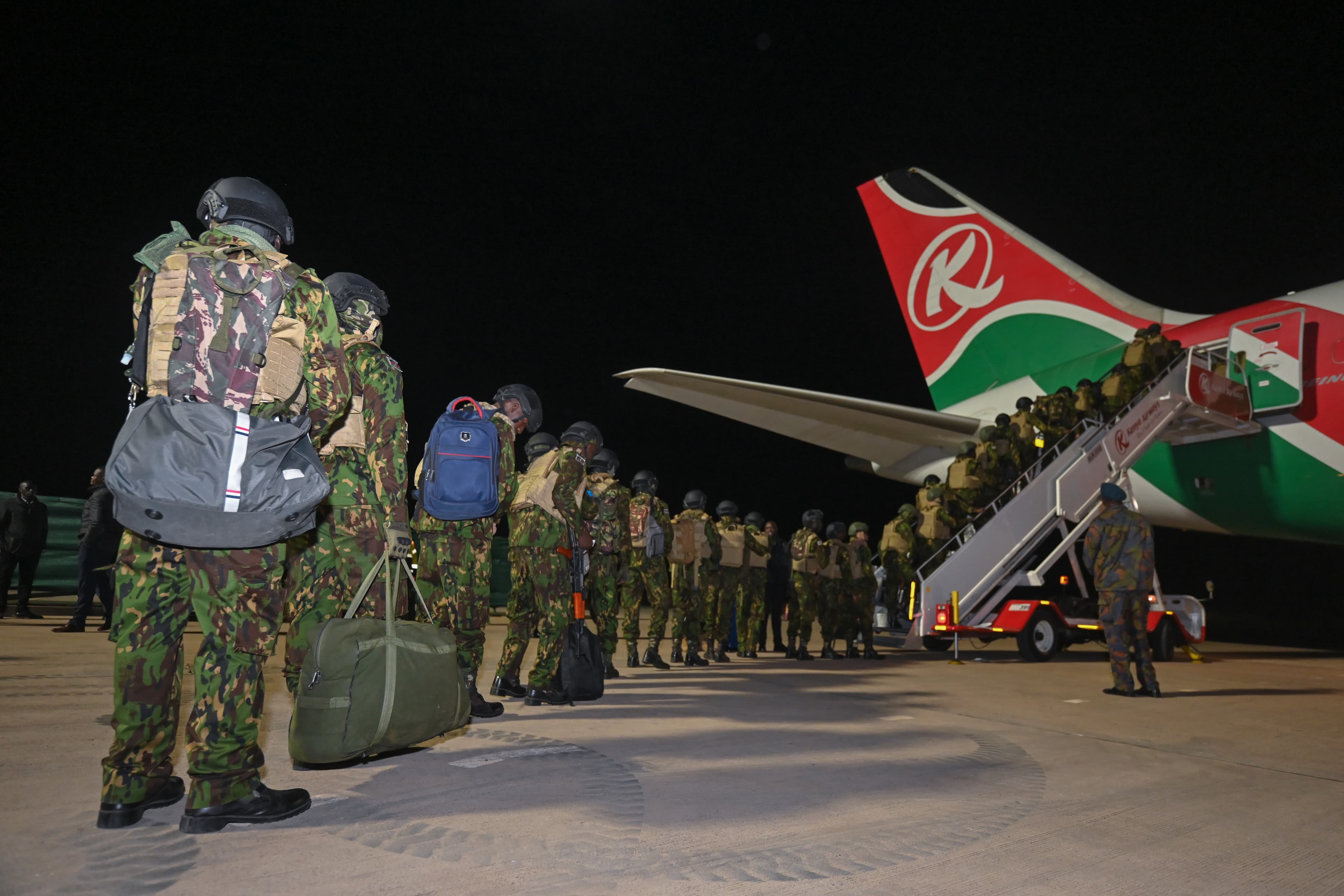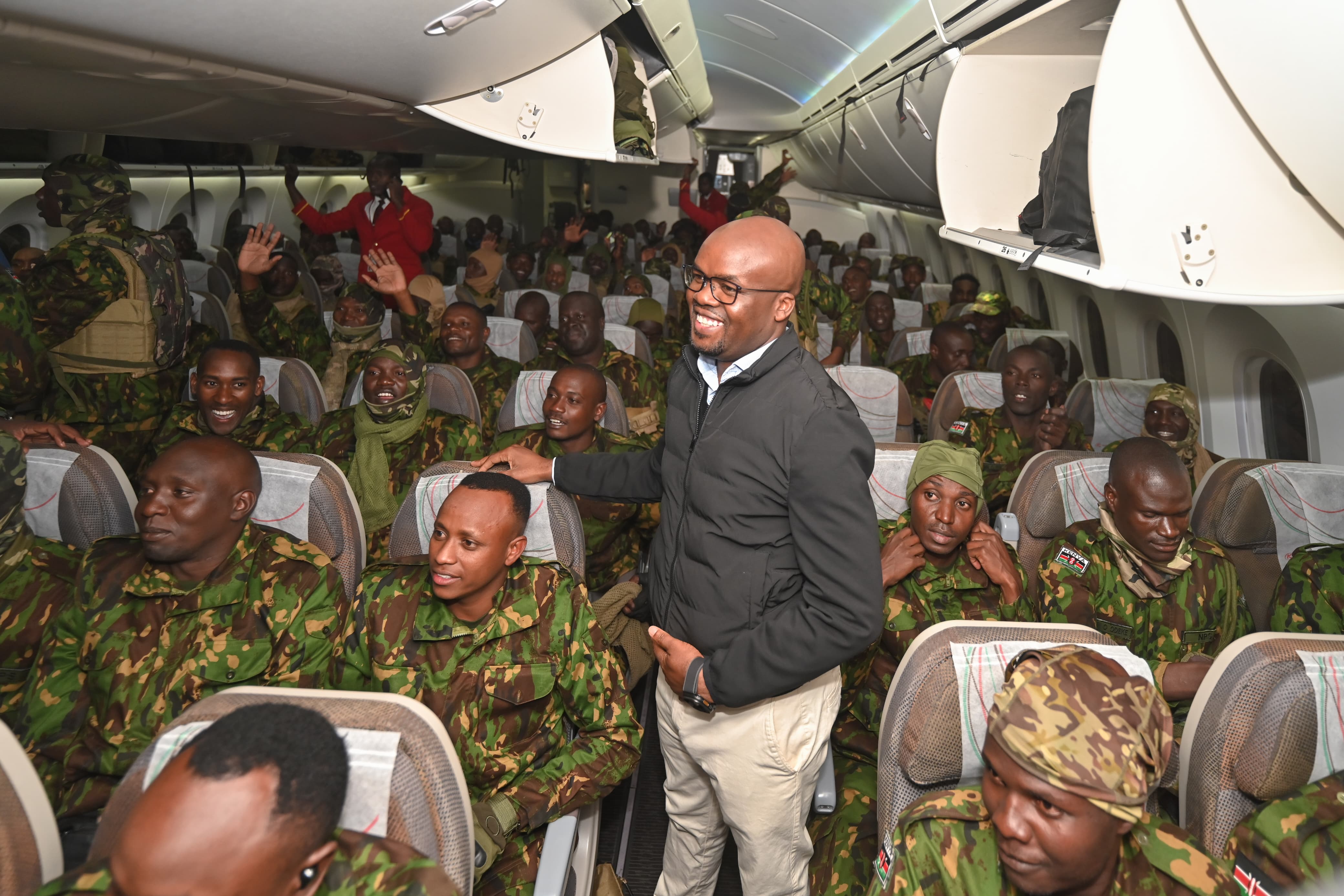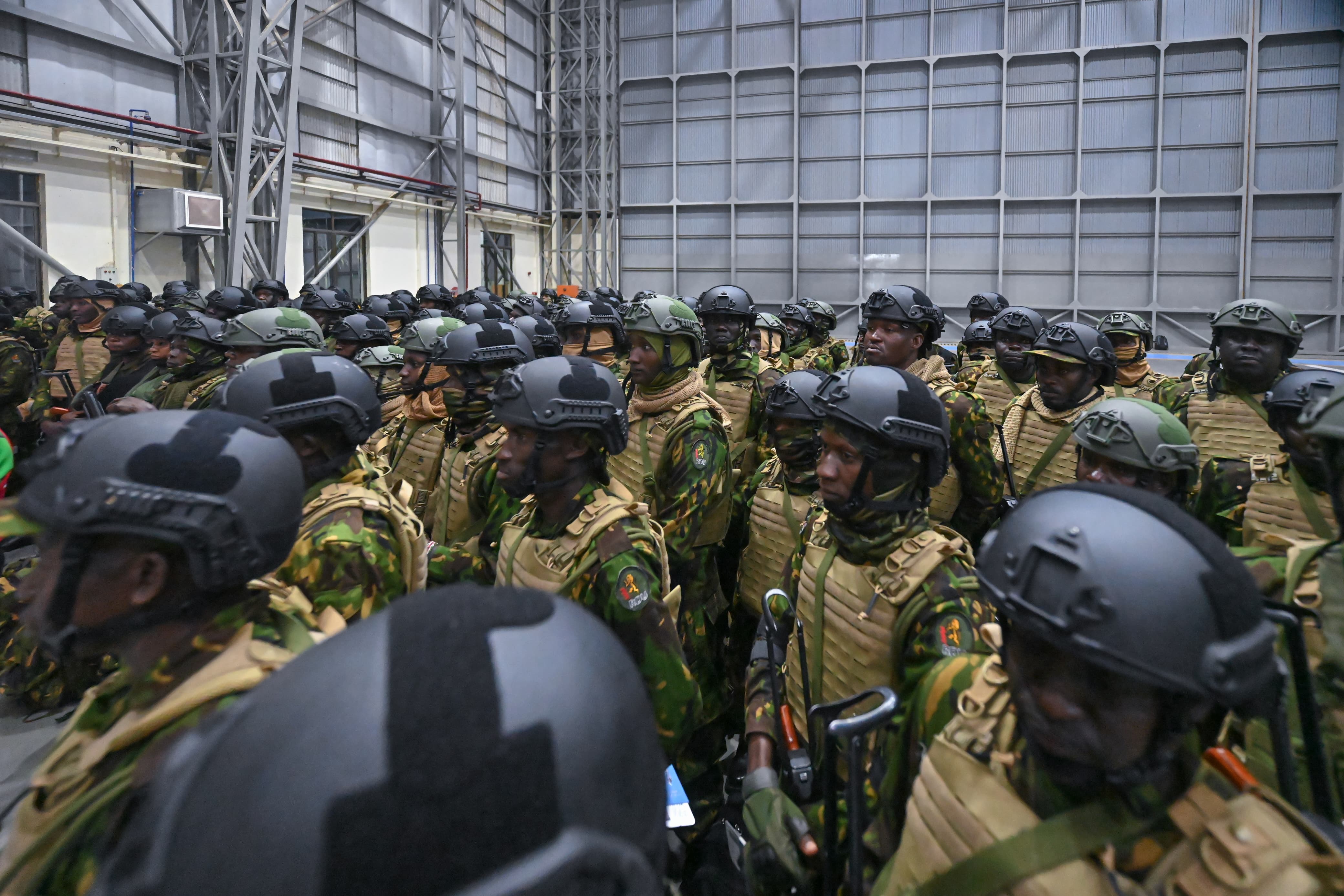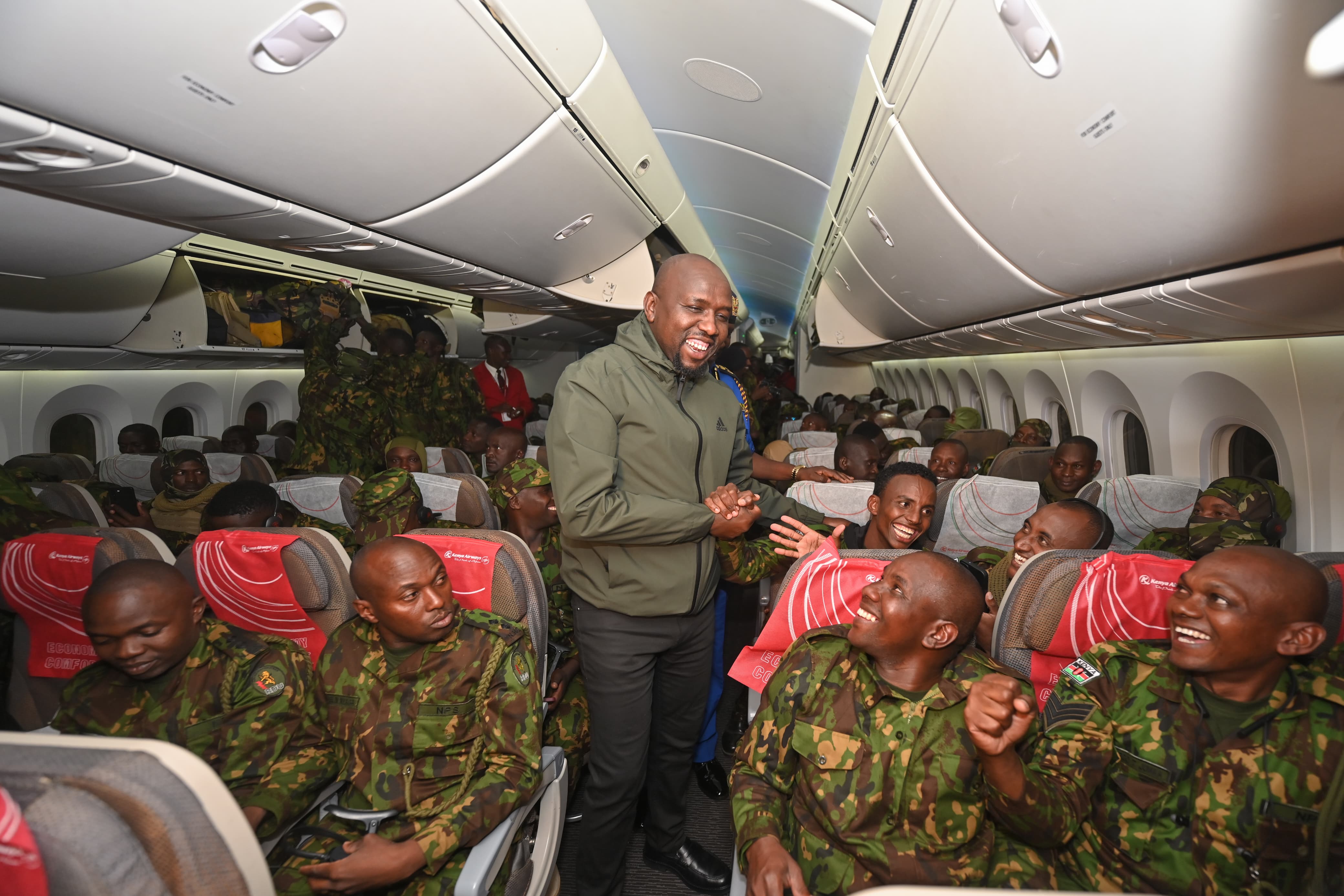

Some 217 more Kenyan police officers left for Haiti Saturday morning to join an operation aimed at containing criminal gangs in the Caribbean country.
The officers from various units of the National Police Service were flagged off by top interior and foreign affairs officials aboard a commercial Kenya Airways flight.
The plane left Jomo Kenyatta International Airport on Saturday, January 18 at about 2 am.
Officials said American aviation officials would escort the plane to Port-au-Prince airport, which remains closed until March 2025 over threats from criminal gangs there.
The 217 are part of the new 600 police officers that are supposed to join the 400 already on the ground.
Officials said it would boost the Multinational Security Support Mission in Haiti led by Kenyan police.

Another team of 200 is set to leave for Haiti before the end of the month before the final team leaves in February, officials said.
The forces are in Haiti to boost a United Nations-backed security mission led by Kenya that has so far failed to prevent violence from escalating.
The 400 police officers on the ground are the first tranche of a UN-approved international force that will be made up of 2,500 officers from various countries.
Officials are also upbeat that the operation is gaining ground and will meet its mission after the graduation of at least 739 Haitian police officers from a college after a five-month training last week.

This is a boost in the ongoing operation against criminal gangs terrorizing locals, officials said.
The new officers are expected to join special units within the Haitian National Police (HNP) to strengthen and enhance police operations.
The MSS also plans to establish new FOBs in the two most affected regions, further consolidating efforts to restore law and order in Haiti.
In March 2024, armed gangs stormed Haiti's two biggest prisons, freeing around 3,700 inmates.

Other countries such as Guatemala, El Salvador, Jamaica and Belize have also deployed troops to the Caribbean nation.
Chronic instability, dictatorships and natural disasters in recent decades have left Haiti the poorest nation in the Americas.
In 2021, President Jovenel Moïse was assassinated by unidentified gunmen in Port-au-Prince.
Since then the country has been wracked by economic chaos, little functioning political control, and increasingly violent gang warfare.
The departure of the cops came as US Secretary of State nominee Marco Rubio hinted that US President-elect Donald Trump will continue backing the mission in Haiti.
Speaking during the Senate Foreign Relations Committee, Rubio commended Kenya's efforts for leading the mission despite facing financial challenges.
He, however, indicated that restoring peace in Haiti would require assistance from foreign partners, indicating that the incoming administration would stay on course in supporting the mission.

"There is no easy answer, the Kenyans are there and they deserve a lot of credit for being willing to take on that mission and in recent days missions from various countries have arrived. I don't think anyone has a master plan for how you fix that overnight," he said.
"You have to establish a baseline security and it's not going to come from a US military intervention. So, I would include foreign partners in the Western Hemisphere, who should be contributing to this effort to provide some level of stability and security in Haiti, so that you can explore the opportunities to have a transitional government that has legitimacy that can ultimately lead to the conduct of elections."
The Biden administration has been pushing for the MSS mission to be transformed into a formal United Nations peacekeeping mission to guarantee funding.













